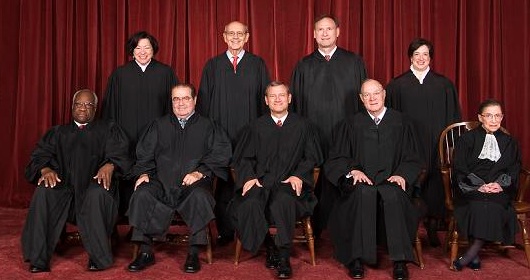Duarte Nursery v. U.S. Army Corps of Engineers Update
PLF Attorney Reports Duarte Appeals Court Decision—Once Again
By Patrick Cavanaugh, Farm News Director
Damien Schiff, principal attorney at Pacific Legal Foundation (PLF) who has been representing the Duarte family in their legal battle with the U. S. Army Corps of Engineers (Corps), provided this update after Judge Kimberly J. Mueller, U.S. District Court for the Eastern District of California dismissed their summary judgment motions on June 10, 2016, and ruled the Corps’ February 23, 2013 cease and desist order did not deprive Duarte of liberty or property. Schiff said his client’s next course of action is filing for an appeal of the judgment.
“It’s disappointing, in particular, because earlier in the case, we had received a very favorable decision from U.S. District Judge Lawrence K. Karlton, the original Federal Judge assigned to our case who ruled in our favor on our due process challenge to the Army Corps’ cease and desist order.” Judge Karlton retired from the bench in 2014 and passed away in 2015. “It was particularly disappointing to see Judge Mueller reverse Judge Karlton’s decision.”
“Launching the appeals process will take some time,” Schiff explained. “Unfortunately, the case is complicated because there are a lot of claims going on and not all of them have been resolved by Judge Mueller’s decisions. The general rule in Federal Court is that you cannot appeal until a final decision has been made that decides all the claims against all the parties.”
Considering the preponderance of hills and valleys across the United States, the magnitude of this case has growers—not just from California, but nationwide—concerned about the outcome and precedents resulting from this case, as well as the significance of future Army Corps-issued cease and assist orders. “It is an amazing assertion of power by the United States Environmental Protection Agency (EPA) and the Corps,” Schiff said, “and I think that’s why we see not just farming groups and property rights groups, but also a majority of the states, challenging the Agency’s Waters of the U.S. (WOTUS) Rule.”
 A significant point of contention in the case, Schiff explained, stems from Judge Mueller’s ruling that because the Duarte property had not seen any farming activity since 1998, the Clean Water Act’s farming exemption was no longer applicable. “That’s, in part, why we challenged the cease and assist orders,” said Schiff, “because the Corps issued this directive without giving any prior notice, much less any opportunity to present contrary information. The reality is, this property, and the other properties in the entire area, have traditionally been used for agriculture, and are, in fact, zoned for agricultural use.”
A significant point of contention in the case, Schiff explained, stems from Judge Mueller’s ruling that because the Duarte property had not seen any farming activity since 1998, the Clean Water Act’s farming exemption was no longer applicable. “That’s, in part, why we challenged the cease and assist orders,” said Schiff, “because the Corps issued this directive without giving any prior notice, much less any opportunity to present contrary information. The reality is, this property, and the other properties in the entire area, have traditionally been used for agriculture, and are, in fact, zoned for agricultural use.” 
The Duarte case is so multifaceted,” Schiff said. “The land was always agricultural, and what was done on the property is consistent with normal agricultural farming practices; there is really nothing exceptional about what went on. What’s particularly problematic for the Corps here is that Duarte went above and beyond the call of duty by having a wetlands consultant ensure that all of the areas assessed to have vernal pool or wetlands characteristics were marked and avoided entirely.”
Whatever the outcome, the Duarte case will have far reaching effects on legal precedent throughout the agricultural community as well as on the cease and assist orders issued by the Army Corps to families throughout the country. “Surprisingly, there isn’t very much case law on what process, if any, is owed to the landowner before the agency issues these orders,” Schiff remarked. “However the Duarte case ends up, I think that will have to be litigated in other parts of the country.”












